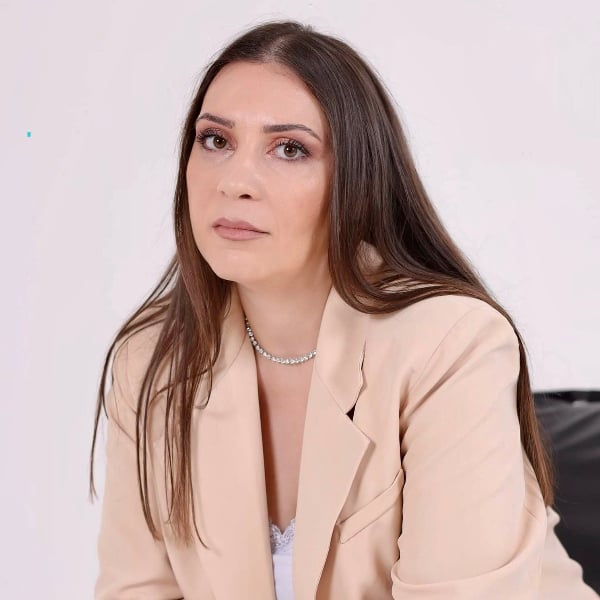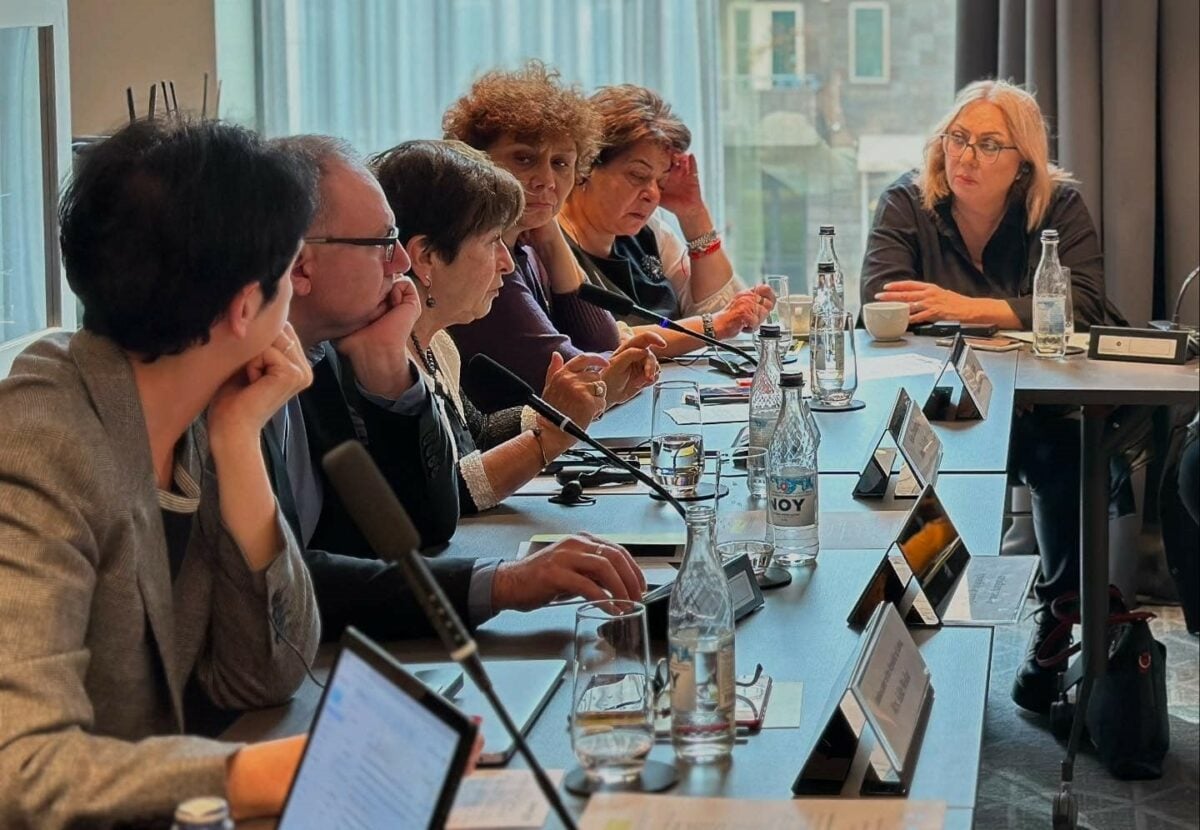The “Latvia’s Euro-Integration Experience: Lessons for Armenia” conference took place in Yerevan. This event was organized with the support of the Embassy of Latvia in Armenia and in collaboration with the Baltic Center for Media Excellence and the Latvian Transatlantic Organization.
Latvia has faced many challenges on its journey to join the European Union. As a member state for 20 years, Latvia highlights the importance of civil society and the media in shaping its foreign policy.
Latvia serves as an example of how a small country can become an important player in global politics. It has joined the European Union (EU) and NATO, increasing its international influence. The year 2025 will be noteworthy for Latvia, as it will participate in the elections for membership in the United Nations Security Council (UNSC).
Edite Medne, the Ambassador Extraordinary and Plenipotentiary of Latvia to Armenia highlighted the importance of mass media in providing accurate information to the public. She emphasized that in conflict situations, particularly when a country faces security challenges, it is crucial to explain any changes to foster a deeper understanding among the public.
The ambassador stated that Latvia is ready to share the experience gained during the transition process as an equal member of the EU, providing knowledge and assistance.
Inna Shteinbuka, an expert at the Latvian Transatlantic Organization (LATO), presented the reforms implemented to enhance Latvia’s security, economic prosperity, and global influence.
She believes achieving macroeconomic stability and implementing rapid structural reforms were the crucial first steps.
The years 2000 to 2006 are referred to as the credit boom period. During this time, loans expanded from 37% to 64% annually. In 2000, the credit of GDP was only 18%, but by 2007, it had surged to 88% (close to the EU average). Until 2005, the national savings ratio was 23% of GDP; however, by 2007, it dropped to 15% as cheap money flooded Latvia. Inna Shteinbuka highlighted that the loans provided during this time primarily stimulated consumption and the real estate market rather than expanding the economic capacity.
At the same time, the government implemented savings measures in healthcare, education, and public administration. Wages became more competitive, a social safety net was established, and oversight of commercial banks and non-resident depositors was enhanced. Steinbuka also pointed out Latvia’s measured approach, noting that the country joined the eurozone on January 1, 2014, becoming the 18th country among the 28 EU member states. This cautious approach helped Latvia avoid the Western financial crisis.
“There is always a way out of a crisis. Bold measures should be taken without delay, and the role of civil society and the media is crucial in facilitating those decisions,” the expert emphasized.

Marta Ribele, a Latvian media expert, highlighted the significant contributions of Latvian media before and during EU membership. She noted that while the development of Latvian media was limited at that time, its role was indispensable.
European legislation consists of multiple chapters covering various topics, such as fisheries, agriculture, and food safety. Currently, negotiations are ongoing, during which all legislation chapters must be discussed. Key issues include whether there is a right to sell fish to foreign buyers and the quality standards that the fish must meet. National laws are being aligned with EU legislation to ensure compliance.
“As a former journalist, I covered this extensively, but I believe not all readers grasped its significance and implications. Journalists often use complex terminology and negotiation jargon that can be difficult for the average reader to understand. We have raised this issue to advocate for information to be provided in a more accessible and understandable language. Since this topic concerns people’s future, it is essential that they comprehend what awaits them after EU membership,” said Marta Ribele.
She believes that Armenia is currently in a more advantageous position than Latvia was 20 years ago. This is mainly due to the availability of the Internet, which allows information to spread more quickly and enables the use of modern formats for disseminating information. This, in turn, helps people better understand current events.
The next stage that the Latvian media encountered was the EU membership referendum. Marta Ribele recalled that the Latvian government organized a large-scale campaign, producing many videos both in favor of and against EU membership to help people make an informed choice. She noted that every effort was made to ensure pluralism and provide comprehensive information about the positive and negative aspects of EU membership.։
The information campaign continued even after Latvia joined the EU. A third phase began because problems arose; it was discovered that Latvia opposed adopting certain legislative regulations.
“People had specific expectations; they wanted to know how much their salary would be after joining, how the export of agricultural products would change, and so on. They sought clear and specific answers. It was crucial to address these questions in two contexts: what would happen after accession and what would happen if there was no accession. The mass media have a responsibility to shape a proper understanding of these issues,” explained Marta Ribele.
To understand how the European Union (EU) functions, it is essential to explore its structures and decision-making processes. By examining the internal workings of the EU, we can clarify the roles of various bodies like the Commission and different interest groups. This understanding is crucial, especially since the EU’s decisions will directly impact the lives of citizens in member countries after an accession. Marta Ribele believes that journalists should effectively communicate these answers to the public.
Boris Navasardyan, honorary president of the Yerevan Press Club (YPC), presented the findings of YPC’s research on Armenia-EU relations. Although the research was conducted two years ago, its insights remain relevant. According to the study, up until the end of 2021, there was a noticeable decline in public trust towards external players, as reflected in media coverage. Concerns over security, along with highly variable positions on the international context, contributed to this trend. Additionally, the level of cooperation with foreign partners was largely contingent on the effectiveness of their mediation efforts concerning relations with Azerbaijan and Turkey.
The views of public opinion leaders who attempt to portray events impartially have garnered less attention from the Armenian audience and media than those of individuals with specific political agendas. Currently, opinions from European Union representatives and other international players are more prominently featured. “They have a clear political orientation. Those who strive to present a balanced perspective find less room in the media,” stated Boris Navasardyan.
Boris Navasardyan pointed out that Armenian media are neglecting the implementation of the Comprehensive and Extended Partnership Agreement signed between the Republic of Armenia and the European Union.
“There is a significant lack of coverage regarding the execution of contracts, which is a serious oversight because it represents the ongoing interactions between the parties involved. Additionally, there is minimal emphasis on the reform agenda. While it is often stated that we are a European nation with a European civilization, there is no analysis of the steps needed to strengthen those ties. Although the rhetoric surrounding the idea of joining the European Union is prevalent, there is a lack of thorough and consistent discussion about the necessary actions to achieve that goal,” explained Boris Navasardyan.
During the final part of the conference, Latvian media expert Rita Rudusa led a brief training session for local journalists on media ethics and public interest, utilizing cases from Latvian media.







